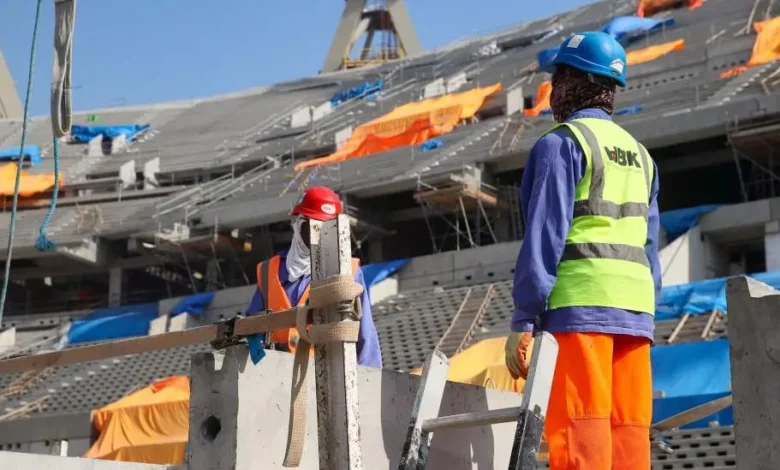FIFA Rejects Committee’s Call to Compensate Workers Affected by Qatar World Cup
FIFA Rejects Committee's Call to Compensate Workers Affected by Qatar World Cup

- FIFA has published a long-awaited report it commissioned into the legacy of the 2022 Qatar World Cup but failed to implement its central recommendation
- The report recommended that FIFA should "dedicate the World Cup 2022 legacy fund in full or in part to further strengthen the competition's legacy for migrant workers."
- Amnesty International condemned FIFA's actions, stating that the report clearly shows FIFA’s responsibility to compensate workers.
FIFA has published a long-awaited report it commissioned into the legacy of the 2022 Qatar World Cup but failed to implement its central recommendation—compensation for workers impacted by the tournament’s preparation and delivery.
The governing body’s human rights and social responsibility sub-committee concluded that FIFA “has a responsibility” to contribute to compensating workers who suffered during the event’s build-up. The committee noted that many workers who contributed to the success of the World Cup “have not yet received adequate remediation.”
The report recommended that FIFA should “dedicate the World Cup 2022 legacy fund in full or in part to further strengthen the competition’s legacy for migrant workers.” However, FIFA unveiled a £39.4 million “legacy fund” earlier this week, which does not include compensation for affected workers, sparking criticism from human rights groups.
The report, commissioned in March 2023 and submitted in December 2023, has been delayed for almost a year. Its findings were based on independent research, which found that “severe human rights impacts” occurred in Qatar from 2010 to 2022.
These included deaths, injuries, illnesses, unpaid wages, and significant debt faced by workers and their families due to recruitment fees. The report also stated that the due diligence measures implemented by FIFA and its partners failed to prevent these impacts, suggesting FIFA may have contributed to some of the issues.
It concluded that FIFA and other organizations involved in the World Cup’s delivery “have a shared responsibility” to provide remedies for the workers affected.
Background and Controversy
The human cost of constructing the infrastructure for the World Cup in Qatar, particularly in extreme summer heat, has been controversial for years. In 2021, it was reported that 6,500 migrant workers from India, Pakistan, Nepal, Bangladesh, and Sri Lanka had died in Qatar since the country was awarded the World Cup bid in 2010. The Qatari government disputed the claim, stating not all deaths were related to World Cup projects. During the event, officials estimated that between 400 and 500 migrant workers had died while working on World Cup-related projects.
Qatar introduced labor reforms in 2017, including worker protections, a minimum wage, and the dismantling of the kafala sponsorship system. However, concerns over the implementation of these reforms have persisted.
Despite the World Cup generating a record £6 billion in revenue, FIFA resisted calls from campaigners, players’ unions, fan groups, and some European football federations to create a £350 million compensation fund for the families of workers who suffered injuries or death. Instead, FIFA opted for the legacy fund.
Amnesty International Reacts
Amnesty International condemned FIFA’s actions, stating that the report clearly shows FIFA’s responsibility to compensate workers. “It validates what human rights organizations, trade unions, fans, and now even FIFA’s own human rights sub-committee have been saying—it’s time for FIFA to pay up,” said the group.
The Fair Square campaign group also criticized FIFA, saying its “legacy fund” failed to address the suffering of the workers who built the tournament. “FIFA has plumbed new depths,” they said, adding that the fund ignored the advice of its own human rights experts.
FIFA’s Response
In response, FIFA stated that all reports and recommendations were considered during a comprehensive review, but not all could be implemented. “While all recommendations could not be met, practical and impactful elements were retained,” the organization said.
FIFA further noted that the report did not provide a legal assessment of their obligations to offer compensation. The FIFA Council unanimously endorsed the creation of the World Cup 2022 Legacy Fund, and FIFA highlighted an existing Workers’ Support and Insurance Fund established in Qatar in 2018. FIFA claims the new Legacy Fund, supported by international agencies, is a “pragmatic and transparent initiative” aimed at helping those in need globally through social programs.





